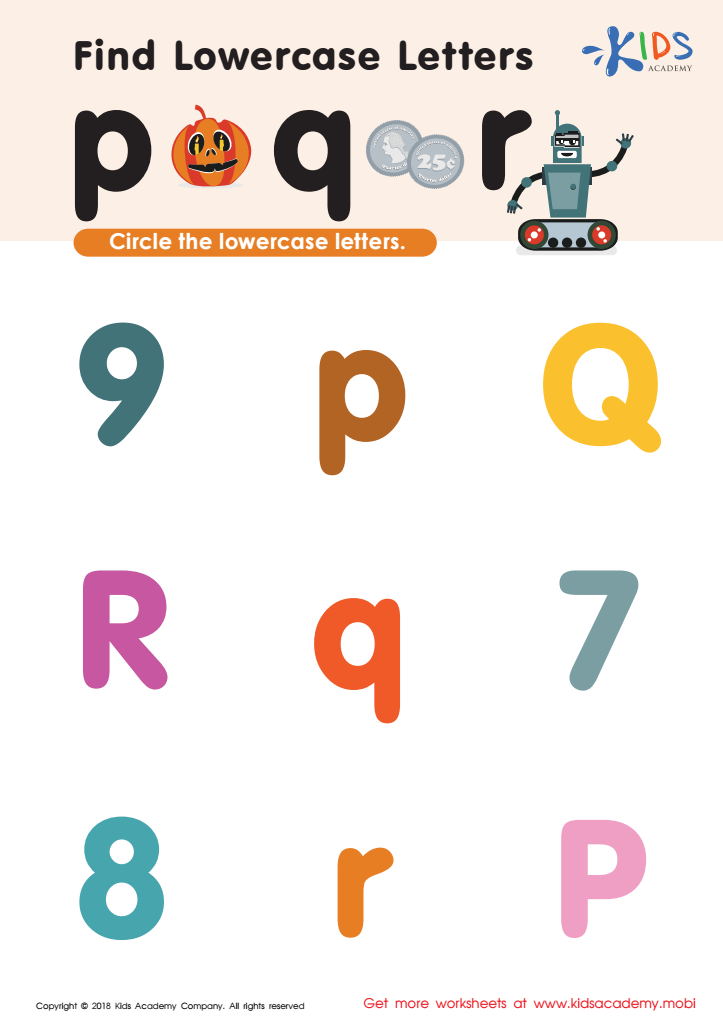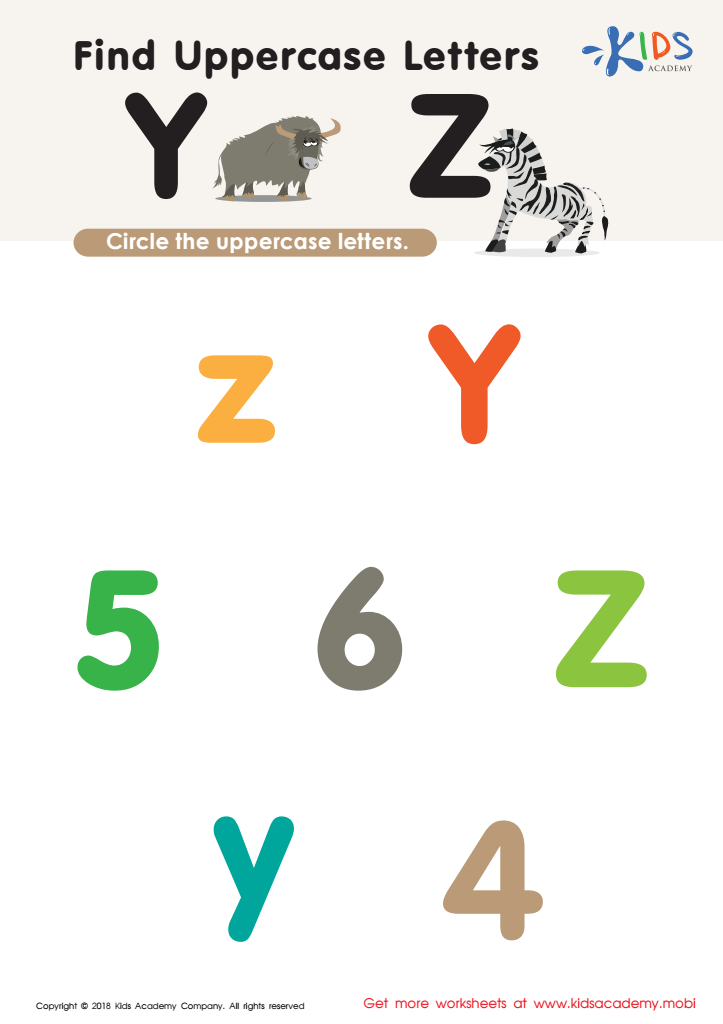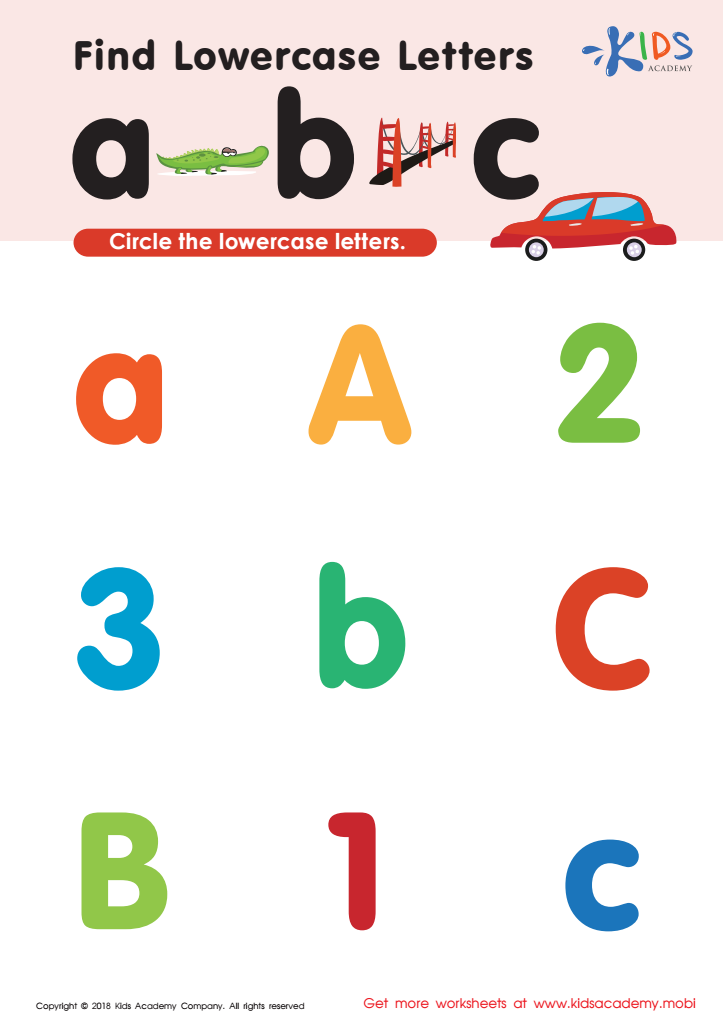Alphabet understanding Normal Upper & Lowercase Letters Worksheets
3 filtered results
-
From - To
Enhance your child's literacy skills with our engaging Alphabet Understanding Normal Upper & Lowercase Letters worksheets. Specifically designed for early learners, these printable resources help children recognize, differentiate, and write both uppercase and lowercase letters. Each worksheet features fun activities and vibrant illustrations that capture young imaginations, making the learning process enjoyable and effective. By practicing through these exercises, children will boost their confidence in identifying letters, improving their reading and writing abilities. Perfect for classroom use or at home, our worksheets provide a solid foundation in alphabet understanding and prepare children for future literacy success. Start your child's journey today!


Find lowercase Letters p q r Worksheet


Find Uppercase Letters Y Z Worksheet


Find lowercase letters a b c Worksheet
Understanding the alphabet, including both uppercase and lowercase letters, is crucial for young learners as it forms the foundation for reading and writing skills. For parents and teachers, fostering letter recognition helps children navigate the world of language more effectively.
First, recognizing uppercase and lowercase letters enhances literacy development. Children encounter letters in various contexts—books, signs, and digital media—where different cases are used. Familiarity with both forms aids in reading fluency, as they learn to quickly recognize words instead of slowly decoding them.
Second, letter understanding promotes effective writing skills. As children start writing, they must differentiate when to use uppercase letters, such as at the beginning of sentences or for proper nouns, versus lowercase letters for regular words. This ability contributes to clear communication and better-developed writing techniques.
Additionally, mastering the alphabet boosts confidence. As children achieve milestones in letter recognition, they gain enthusiasm for reading and writing, which cultivates a lifelong love for literacy.
In conclusion, parents and teachers should prioritize helping children understand uppercase and lowercase letters, as it lays the groundwork for their academic success and lifelong learning. Engaging with letters early and often will foster a strong foundation for all future language skills.
 Assign to My Students
Assign to My Students












